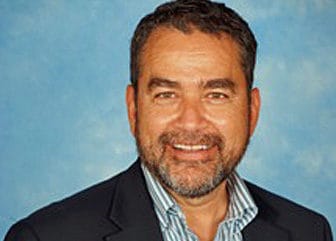COMMENTARY: In a rare demonstration of bipartisan cooperation, Democratic and Republican mayoral candidates and their operatives have teamed up to discredit the Albuquerque Open and Ethical elections system passed by voters overwhelmingly – 69-31 percent — in 2005. By attacking the only publicly financed mayoral candidate in the race, they may have signed the death knell for the system and any hopes of reducing the influence of big money in local elections.

Courtesy photo
Eric Griego
There is no question that the city’s public financing system needs to be overhauled. Making it more accessible, accountable and viable is fundamental to reducing the oversized role of powerful interests such as big developers and city contractors in city elections.
However, some mayoral candidates and their political operatives are campaigning against the system for their own political gain. While this may be great for their own current political aspirations, it is bad for clean elections and addressing the corrosive effects of campaign contributions.
As the primary sponsor of the ballot measure in 2005, I worked with my colleagues on City Council to strike a balance between making the system accessible to more candidates but difficult enough to qualify for so that only serious mayoral candidates, with deep community support and experience, could qualify for the $1-per-voter campaign funding from the public.
In 2009, the first year mayoral candidates could use this system, all three candidates, including R.J. Berry and incumbent mayor Marty Chavez, qualified for and used the system. Part of their calculation no doubt was that the original public financing system provided for matching funds to publicly funded candidates to keep pace with privately funded candidates. If any of the three 2009 mayoral candidates would have raised private money, their opponents would have been given matching funding to level the playing field.
However, in 2011 the same U.S. Supreme Court behind the 2010 Citizen’s United decision struck down a similar Arizona matching funds provision, which essentially gutted the Albuquerque system, at least for mayoral candidates. In the 2013 election, incumbent Mayor Richard Berry, who had been elected using public financing just four years earlier, instead chose to raise $850,000 in private contributions – many of which came from the most powerful and well-connected in Albuquerque.
Of the eight current mayoral candidates, only one – Tim Keller — qualified for public financing by collecting $5 contributions from more than 6,000 voters. A few others attempted to qualify but were unsuccessful in gathering the necessary contributions. Some argued qualifying was too hard.
A 2010 report by the Center for Governmental Studies made several recommendations to improve the accessibility and efficacy of Albuquerque system. In addition to making it less onerous to qualify for public financing in the mayor’s race, the report suggested more accountability for the system and proposed increasing the amount of public financing in the mayor’s race to make publicly financed candidates more competitive with privately financed candidates.
To try to address the viability issue, the Albuquerque City Council last year voted 8-1 on a ballot measure to fix the funding for mayoral candidates by increasing the amount from $1/voter to $1.75 per voter. Unfortunately, opposition to the measure from some mayoral candidates (one of whom, Commissioner Wayne Johnson, should have recused himself) killed the proposal that would have addressed one of the key flaws in the current system – the disparity between privately funded and publicly funded candidates.
Brian Colón, who has raised more than $750,000, most of which came from less than 100 individuals connected to powerful interests in Albuquerque, told New Mexico In Depth in July that “the current system doesn’t provide enough funds for me to effectively communicate my message to the citizens of Albuquerque.” Media reports have not yet – but hopefully will — investigate the role privately funded mayoral campaigns played in quashing the proposed fix to the system.
After the dust settles in the 2017 mayor’s race, Albuquerque voters will have a chance to decide whether to repair the current system — if it has not been so damaged by some of the current slate of privately funded mayoral candidates and their operatives. Had Brian Colón, Dan Lewis and Wayne Johnson, the three candidates raising the most private money from developers and city contractors, strongly supported the proposal to fix the system last fall, rather than ignoring or undermining it, this year’s mayor’s race would have been very different.
The battle could have looked a lot more like the 2009 mayoral race, when all three mayoral candidates spent their time talking to voters, rather than soliciting contributions from the most powerful interests in the city.
Eric Griego is currently state director of the N.M. Working Families Party. A former Albuquerque city councilman, he was the sponsor of the 2005 Albuquerque Open and Ethical Elections system. Agree with his opinion? Disagree? NMPolitics.net welcomes your views. Learn about submitting your own commentary here.